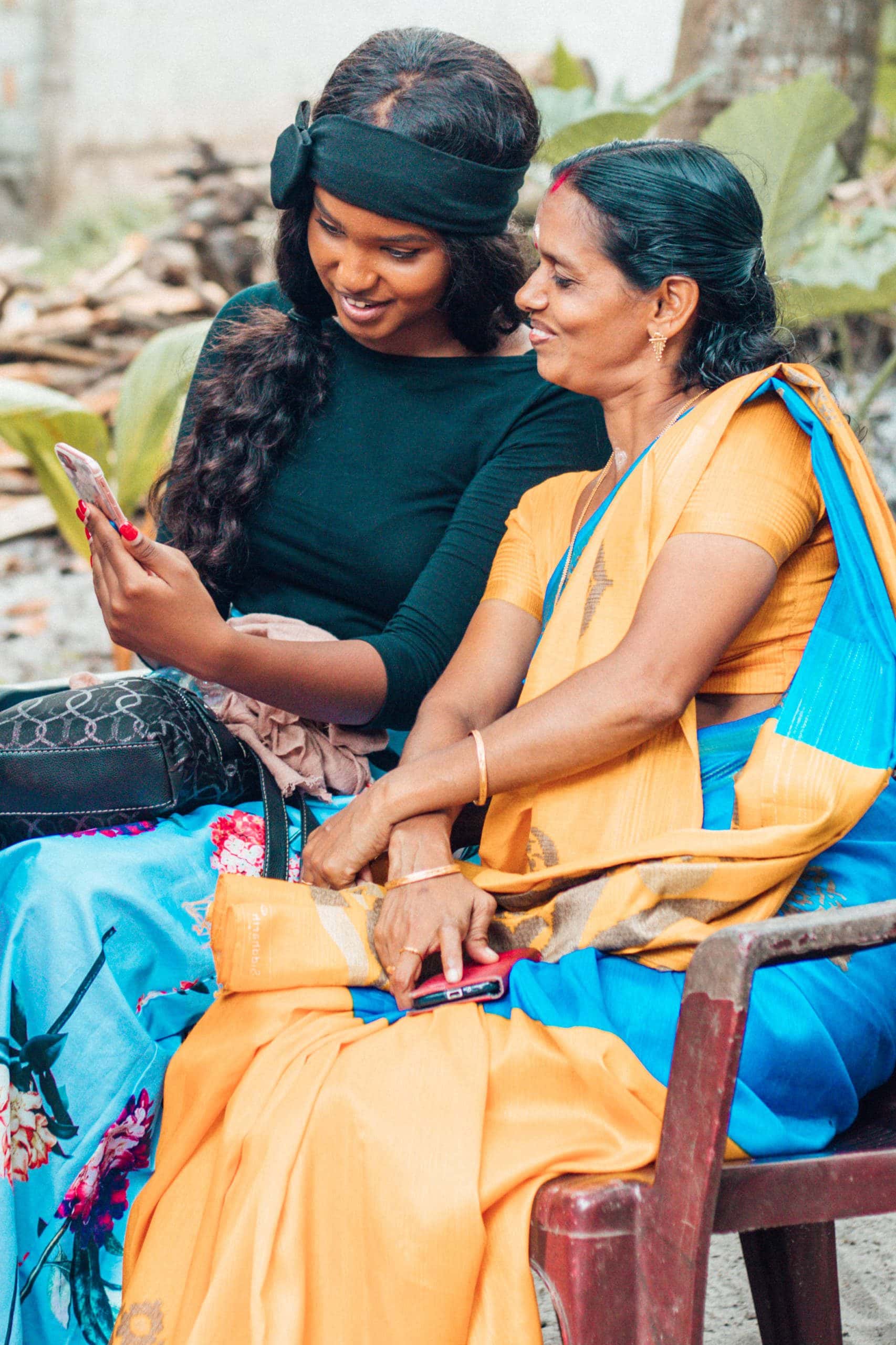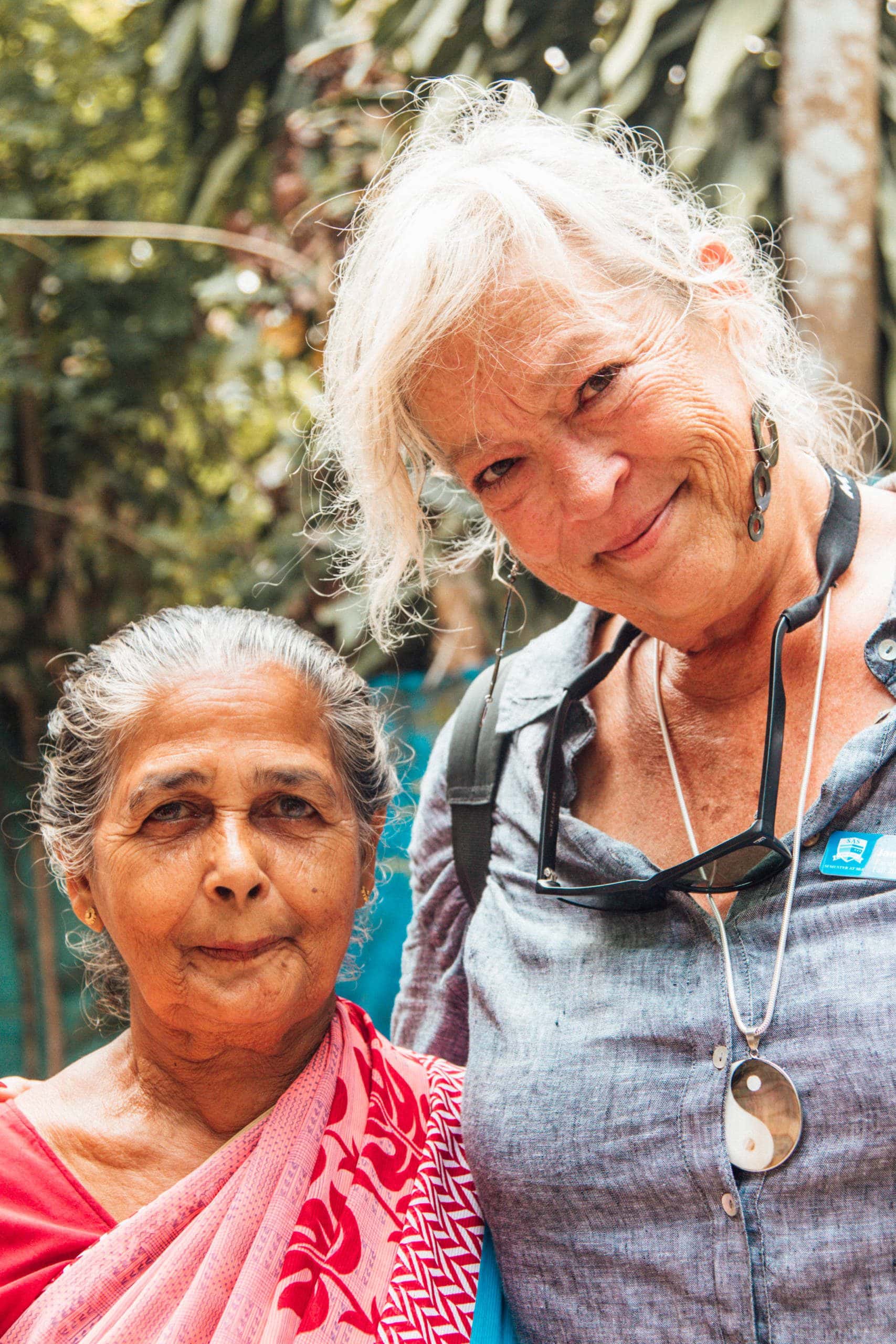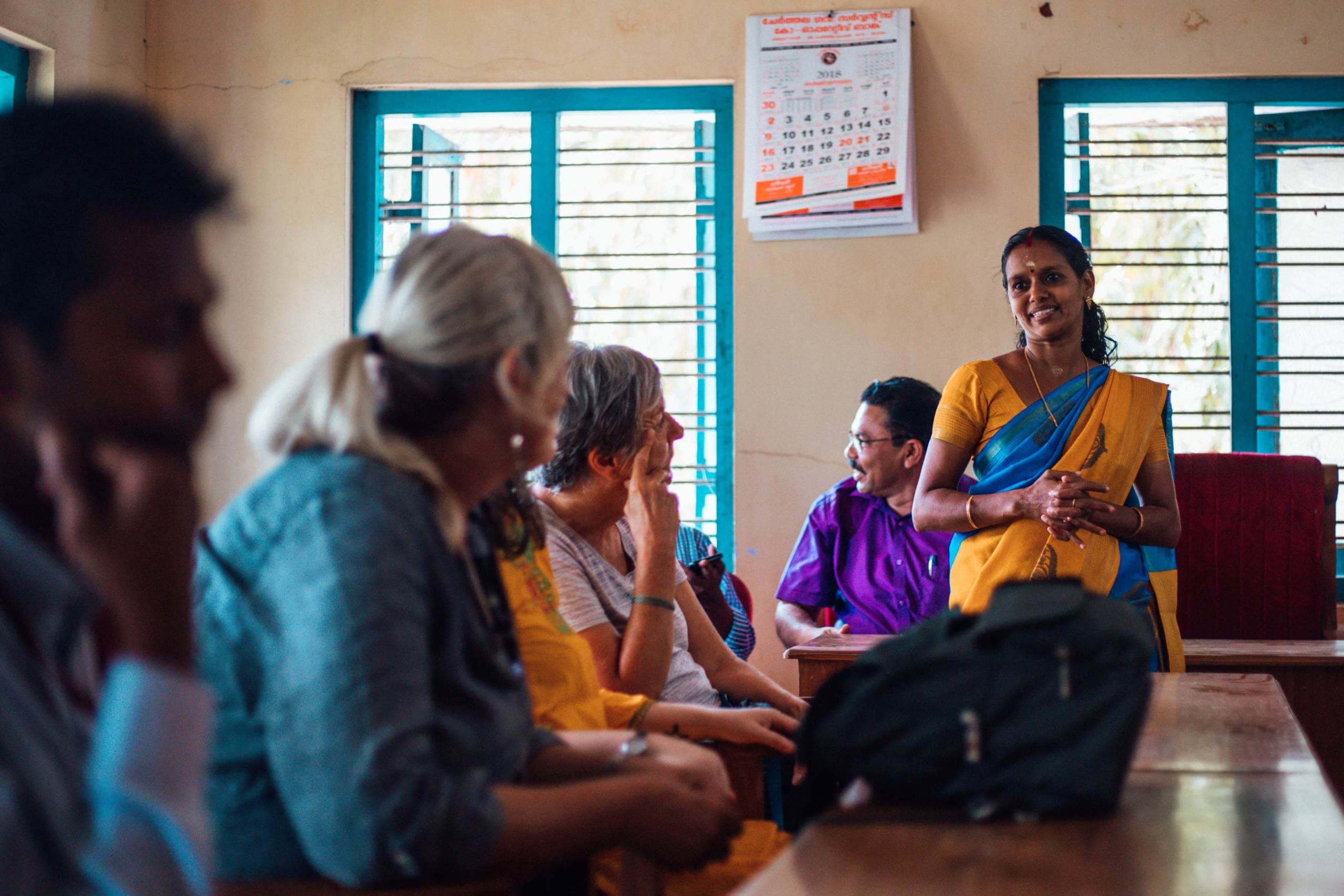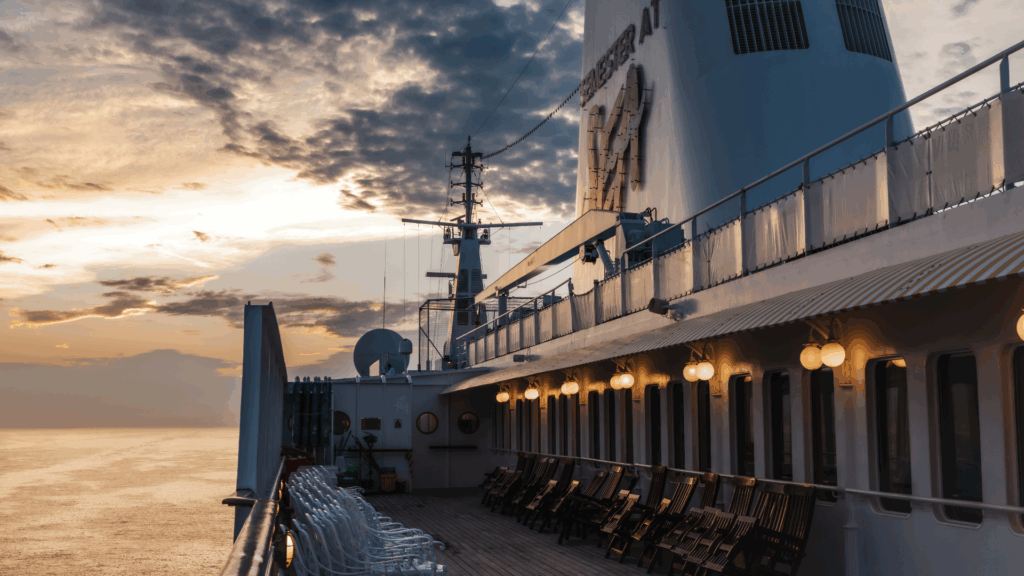Change comes about slowly in the face of outsized obstacles, as the women’s movement in the United States and elsewhere around the world can attest. But the value of a comparative study abroad experience is seeing that change takes root in different parts of the world, in different ways, thanks to a combination of smart activism, hard work, and institutional support. One of these small movements was showcased during a Semester at Sea field program called “Kudumbashree Women’s Empowerment Project,” which focused on one of the largest women empowerment projects in India.
“I’m feeling very proud of this organization, because before, we had to ask our husbands for money for shopping or buying something for our children,” said Nisha Murali, an entrepreneur involved in the project.
“But now women are earning the money,” she added with a grin.
Kudumbashree supports women in a number of ways: through training, entrepreneurship support, education, and more. For example, Fall 2018 voyagers were the first international group to visit the initial house built by an all-women team from the Kudumbashree project in the state of Kerala.
“Every person’s dream is to have a good house, and the government is trying to encourage the women’s group to come forward in construction and asking the women to learn electrical, plumbing, and other things necessary to build a home,” said Dax Gueizelar, a local expert for the Kudumbasree project.
The construction of the house took just over 50 days and was built by a team of 35 women. Completion of the project allowed a family of three to start living comfortably in a structured home with modern plumbing, lighting, and other amenities.

“Initially, families didn’t allow the woman to go out to work, because the man of the family is supposed to protect them. Now, women are coming forward proving themselves capable of doing the same work,” Gueizelar said.
Of course, the Kudumbashree project has encountered their share of roadblocks. As part of the project, a group of women tried to start a mushroom business and invested 200,000 rupees into the idea in 2010, only to have it fail after two years. In 2014, the same group of women banded together to start baking desserts to sell to 20-25 local cafeterias, and have been successful for the last four years.
“That’s why this project is so important,” said Janet Six, a faculty member who led the field program, “because they’re allowing women to take charge of their destiny and not be a part of this perpetual cycle of poverty.”
Empowering women through education, finances, and jobs is one major step to allowing women in India to lead. But the most impressive step toward positive change has been made through the governing practices and politics in the region.
In 2010, Kerala became the first state in India to reserve 50 percent of their seats for woman in local and state government. According to the organization, about 85 percent of the woman who are currently involved in local government have attained leadership skills from their involvement with the Kudumbashree organization.
“I think traditionally, women are left out of politics. We live within those societies, but we’re not invited to the table to talk about discussions and the things that affect our lives as well,” said Muna Abdulahi, a junior studying political science at the University of Minnesota-Twin Cities.
One of the speakers invited to meet voyagers was an example of this shift in power: a woman who has held the equivalent title of ‘governor’ in the region for the last 15 years.
“Through the women’s group, there are a lot of women who found these qualities within themselves and actually came forward and stood in the general election,” Gueizelar said.
One of the benefits of comparative study abroad experiences is being able to witness firsthand how the actions of groups in one country can inspire and affect students on an international scale.
“Often times we think everybody’s on equal footing. And we go to these places and we see people who don’t know how to read and write because they’re being taught that late in life, or learning how to manage money because maybe they never had any money or were never allowed to be in control of it. So learning how to take control of your own life and not putting it in someone else’s hands, human agency, is inspiring and important to see,” Six said.




